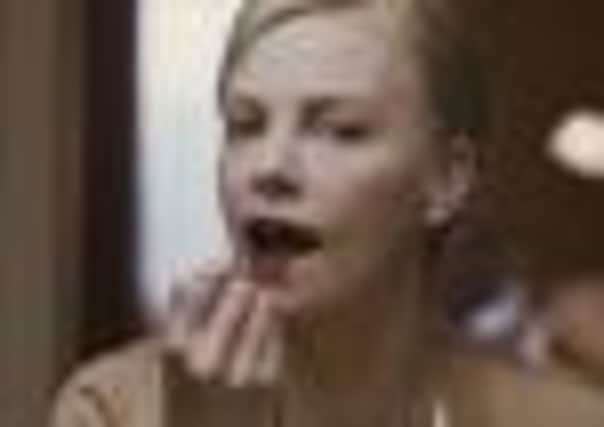If you love something let it go: our film critic on 1990s nostalgia


For anyone who came of age at this time – which basically includes anyone who professed disbelief when Nirvana’s Nevermind celebrated its 20th anniversary last year – the opening credit sequence of Young Adult will likely trigger a Proustian moment, comprised as it is of shots depicting the inner workings of a cassette recorder intercut with Charlize Theron’s character, Mavis, repeatedly rewinding, playing and singing along to a mix-tape recording of Teenage Fanclub’s bittersweet love song The Concept.
With Mavis belting out the regret-tinged lyrics (“I didn’t want to hurt you/oh yeah”) as she drives back to her hometown in a misguided effort to rescue her old high school boyfriend from the perceived misery of marriage and new fatherhood, it not only sets the ironic tone of the blackly comic story to follow, but sets the scene for a journey into a little explored era in cinema.
Advertisement
Hide AdYes, unlike the 1970s, 1980s and, somewhat bizarrely of late, the 1920s, the 1990s have thus far proved curiously resistant to nostalgia in the movies, especially given how thoroughly mythologised – courtesy of Nirvana – its music has become. This immediately makes Young Adult something of a novelty courtesy of a time capsule-esque small town setting in which ageing grunge fans can wear Pixies and Breeders t-shirts with impunity, get drunk on home brew, and listen to a diverse array of faintly memorable early 1990s music ranging from the Lemonheads’ It’s a Shame About Ray and the aforementioned Teenage Fanclub track (a motif throughout the film), to Veruca Salt’s almost hit Seether and even – yikes – 4 Non Blonde’s unavoidable 1993 grunge anthem What’s Up.
At which point it should come as no surprise to learn that Young Adult is also the latest script from Diablo Cody. At 34, the supremely gifted Oscar-winning writer of Juno has become almost the de facto queen of 1990s nostalgia. Juno, for instance, was filled with references to Sonic Youth and featured thirtysomethings grappling with domesticity while sporting old Alice in Chains gig-wear. Her second film, the brilliantly written/boringly directed horror movie Jennifer’s Body, went one better: it was named after a track from Hole’s 1994 album Live Through This.
Young Adult, meanwhile, sees her coming full circle, plugging the pop culture gap by more thoroughly by catching us up with a generation whose youth was sorely underrepresented on screen at the time thanks to Cameron Crowe’s wretched grunge rom-com Singles and Ben Stiller’s bogus Reality Bites killing off any interest.
What’s great about Cody’s take on the 1990s, though, is that her scripts don’t view the decade through rose-tinted shades. She’s not attempting to update American Graffiti or The Big Chill for Generation X. Befitting the era’s more cynical nature, her films are far savvier than that. Thus while some of her characters in Young Adult may state wistfully that “the 90s were awesome”, the film is too dark-hearted to present small town life – even small town life tinged with cool reference points – as having a strong enough pull to really rehabilitate its heroine in some false Hollywood way.
Indeed, just as the heroine of Juno rejected Sonic Youth (“It’s just noise”) when she saw how infantile the ageing hipster she’d picked to adopt her baby really was, Theron’s Mavis, in her own twisted manner, does learn some important lessons: namely that history is bunk, you can never truly go home, and, no matter how brilliant the music could be, there’s really no future in grunge. If you love something let it go.